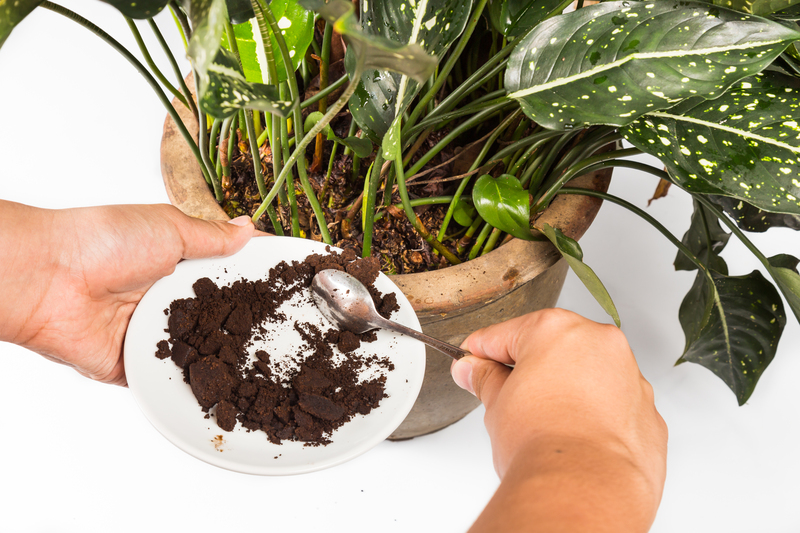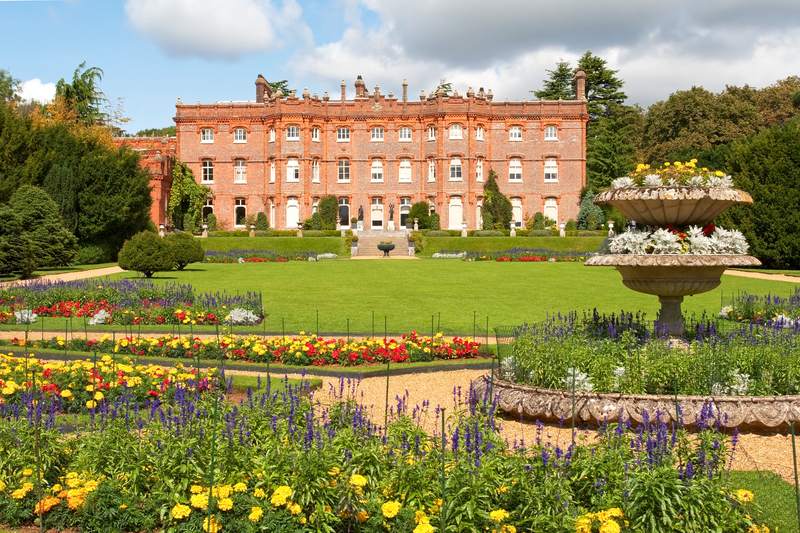Discover 9 Essential Gardening Tips for Beginners
Posted on 25/05/2025
Discover 9 Essential Gardening Tips for Beginners
Are you eager to start your gardening journey but feel overwhelmed by where to begin? Fear not! Whether you have a sprawling backyard or a sunny balcony, gardening for beginners opens an exciting world of possibilities. With the right advice and a little patience, you can cultivate a beautiful, productive garden that nourishes both your body and soul. In this comprehensive guide, you'll discover 9 essential gardening tips for beginners that will help you plant the seeds of success. Let's dig in!

Why Gardening Is Good for You
Gardening isn't just about planting flowers or growing your own food. Studies show that spending time in green spaces can improve mental health, relieve stress, and even lower your risk of chronic diseases. Not to mention, tending your own plants is a rewarding way to connect with nature. If you're a novice, understanding the basics is your first step toward becoming a flourishing gardener.
9 Beginner Gardening Tips You Need to Know
1. Choose Your Gardening Space Wisely
Before you plant anything, it's crucial to select a suitable location for your garden. Assess your available space, whether it's a backyard, balcony, patio, or windowsill. Most vegetables and flowers thrive in spots that receive at least 6 hours of sunlight daily. If you have limited sun, look for shade-tolerant plants such as ferns or leafy greens.
- Test light exposure: Observe your chosen spot at different times of the day to gauge how much sun it gets.
- Check accessibility: Make sure you can easily reach your plants for watering and maintenance.
- Consider container gardening: If outdoor space is limited, container gardens are an excellent solution for small areas.
2. Understand Your Soil
Healthy plants start with good soil. Your soil type--be it clay, sand, or loam--influences plant growth. Conduct a basic soil test using a kit from your local garden center or cooperative extension.
- If your soil feels sticky and forms a ball, it's clay-rich. Amend with compost to improve drainage.
- If it's gritty and drains too quickly, it's sandy. Add organic material to boost water retention.
- Loamy soil--dark, crumbly, and rich in nutrients--is ideal for most plants.
Enrich your soil regularly with compost to supply essential nutrients and maintain its health. Healthy soil means thriving plants!
3. Start Small, Think Big
When you're new to gardening, it's easy to get carried away. Begin with a small patch or a few containers. This way, you can learn the ropes without becoming overwhelmed. As your confidence grows, so can your garden!
- Choose low-maintenance plants for your first season, such as herbs, lettuce, or marigolds.
- Experiment with different garden layouts to find what works for you.
- Don't hesitate to make mistakes--they're part of the learning process for every beginner gardener.
4. Pick the Right Plants for Your Region
Not all plants thrive everywhere. Research which plants grow best in your climate zone. Local nurseries usually stock varieties suited for your area. Consult the USDA Hardiness Zone Map or your country's equivalent for the best results.
- Native plants: These are adapted to local conditions, require less water, and attract pollinators.
- Edibles: If you want to grow food, research which vegetables, fruits, or herbs flourish in your region's season and temperature.
- Ask for advice at your local garden center--they're often happy to help new gardeners.
5. Water the Right Way
One of the most common beginner mistakes is over- or under-watering. Plants need consistent moisture, but soggy soil can lead to root rot.
- Water early in the morning to reduce evaporation.
- Check soil moisture before watering by sticking your finger an inch into the soil. If it feels dry, it's time to water.
- Consider using a soaker hose or drip irrigation to deliver water straight to the roots.
Bonus Tip: Mulch your garden beds to retain moisture and regulate soil temperature.
6. Feed Your Plants Properly
Just like humans, plants need nutrients to thrive. While compost is the best all-around soil amendment, you might also need to add fertilizer based on your soil test results.
- Organic fertilizers: Such as fish emulsion or seaweed extract, promote healthy growth without harming the environment.
- Slow-release fertilizers feed your plants over time, minimizing the risk of burning roots.
- Follow package instructions--too much food can be just as harmful as too little.
7. Practice Proper Plant Care
It's tempting to plant seeds and walk away, but regular maintenance is the secret to a flourishing garden. Check on your plants frequently to stay ahead of issues.
- Prune dead leaves and stems: This helps plants focus energy on new growth.
- Keep weeds at bay: Weeds steal nutrients and water from your desired plants. Hand-pull weeds or use mulch as a barrier.
- Stake tall plants to provide support against wind and rain.
8. Monitor for Pests and Diseases
Vigilance is key in organic gardening for beginners. Common issues include aphids, caterpillars, fungal diseases, and more. Early detection is your best defense.
- Inspect leaves regularly: Look for spots, holes, or sticky residue.
- Encourage beneficial insects: Ladybugs, lacewings, and predatory wasps help control pests naturally.
- Use natural remedies: Neem oil, insecticidal soap, or a strong jet of water can manage many common pests.
9. Keep Learning and Having Fun
Perhaps the most vital gardening tip for beginners is to stay curious! Every garden season brings new lessons. Join a local gardening group, follow gardening channels online, and experiment with new plants and layouts. Remember, gardening is as much about the journey as the harvest. Celebrate small wins, learn from your setbacks, and enjoy the therapeutic benefits of nurturing life with your own two hands.
Beginner Gardening Tools You'll Want
Starting your gardening adventure is easier with the right tools. Consider adding these basics to your kit:
- Trowel: For digging, planting, and scooping soil.
- Hand fork: Helps aerate the soil and loosen compacted dirt.
- Gloves: Protect your hands from thorns, blisters, and soil-borne diseases.
- Watering can or hose: For keeping your garden hydrated.
- Pruners: Essential for trimming dead growth and harvesting crops.
The Best Plants for Beginner Gardeners
Not sure what to grow? These plants are famously easy, rewarding, and perfect for those just starting out:
- Herbs: Basil, mint, chives, and thyme are delicious and low-maintenance.
- Leafy greens: Lettuce, spinach, and arugula grow quickly and can be harvested repeatedly.
- Marigolds: Bright annual flowers that deter pests and thrive with little care.
- TOMATOES: With sun, water, and a bit of support, tomatoes are a classic backyard favorite.
- Succulents: For those with a brown thumb, succulents need minimal watering and care.

Common Beginner Gardening Mistakes to Avoid
Every gardener makes mistakes, but you can avoid the most frequent blunders by keeping these tips in mind:
- Planting too soon: Wait until your local frost dates have passed to avoid losing tender plants.
- Neglecting soil health: Healthy roots mean healthy plants! Feed your soil, not just your plants.
- Ignoring spacing recommendations: Crowded plants compete for resources. Give them room to breathe and grow.
- Inconsistent care: Regular watering, weeding, and observation ensure early detection of problems.
- Overcrowding containers: Pots need adequate space and drainage for strong growth.
Conclusion: Your Journey to a Greener Thumb Starts Now
Embarking on your first gardening season is an exciting and fulfilling experience. By applying these 9 essential gardening tips for beginners, you'll build the skills, confidence, and knowledge to grow a beautiful, healthy garden. Start small, keep learning, and above all, enjoy every moment of your gardening adventure.
Ready to get growing? Share your gardening stories and follow us for more gardening tips for beginners and fresh inspiration every week!
Frequently Asked Questions (FAQs)
- Q: How do I start a beginner garden?
- A: Choose a sunny spot, start with easy-care plants, ensure good soil, and water consistently. Don't forget to enjoy the process!
- Q: What is the best month to start gardening?
- A: Most beginners start in spring, but the best time depends on your local climate. Check your last frost date before planting outdoors.
- Q: How often should I water my garden?
- A: Water when the top inch of soil feels dry. Most gardens need about 1 inch of water per week, but this varies by plant type and weather.
Happy gardening -- may your green thumb flourish!
Latest Posts
Evergreen Climbers for Shade: Reviving Gloomy Spots
Creating a Dog-Friendly Garden Sanctuary
Exploring the Benefits of Container Gardening
Mastering Your Garden: Top 3 Tips for Effective Weed Control

